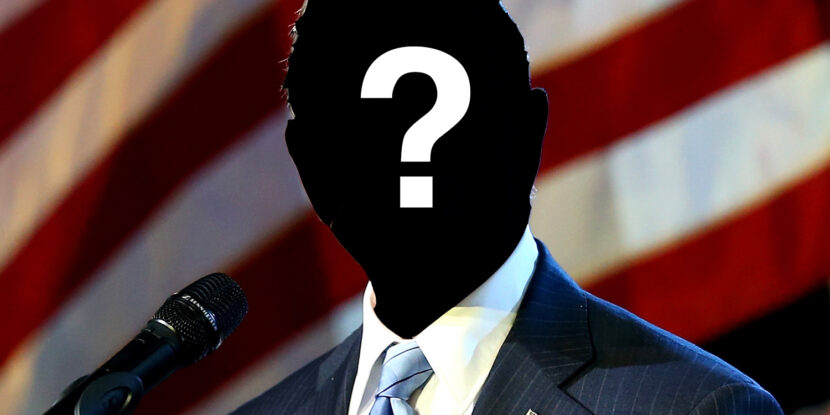With the GOP convention less than two weeks away, the media is buzzing with news and rumors about who Donald Trump may pick to be his running mate.
Dozens of names have been mentioned, from sitting governors and members of Congress to retired politicians and even political outsiders. Cutting through some of the speculation, however, here are Trump’s five most likely options.
Newt Gingrich
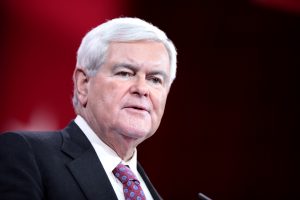
Gingrich, who served as Speaker of the House from 1995 to 1999, is well-known in conservative circles for his nearly encyclopedic knowledge of political history. Though he has, at times, been criticized as too ambitious, Gingrich is seen by many as a strong, principled conservative with elder statesman status in the party.
His time in the House and on the campaign trail in 2012 would bring an element of experience sorely missing from the Trump campaign. Writing for Time, David Lane argued that “Selecting Gingrich as Veep would send a message worldwide—that Trump is bringing ‘adults’ to the table with the intention to make America great again.”
In many ways, Gingrich’s “Republican revolution” in the ‘90s resembled Trump’s program, albeit in a more refined form. Gingrich, like Trump, was interested more in winning over discontented Democrats than in strict observance of conservative orthodoxies.
In a column this week, Jonah Goldberg argued that “Gingrich could complement Trump; he could be like the walking explanatory footnote to Trump’s every outburst.” Gingrich could provide a rhetorical defense of Trump’s platform and statements, thus elevating the tone of the campaign in some sense. On top of that, Gingrich is already a skilled and formidable critic of the Clintons, as he dealt with them throughout the 1990s.
Gingrich also comes with some negatives, however. His time in the House was brought to an end when he received a $300,000 sanction after a series of 84 ethics complaints. On top of that, he has faced allegations of immorality and hypocrisy regarding previous adulterous relationships and divorces. Some of the harshest criticisms against the Trump campaign stem from a clout of moral corruption surrounding The Donald, and adding Gingrich to the ticket certainly would not help the optics on that front.
Tom Cotton

Radio host Hugh Hewitt has frequently encouraged Trump to consider selecting Arkansas’s junior senator, Tom Cotton, to be his vice president. Cotton, who served as an U.S. Army captain in Iraq, has earned a reputation for his willingness to stand up for a strong national defense.
Senator Cotton is perhaps best known for his ardent opposition to President Obama’s 2015 Iran deal. Cotton organized 47 Republican senators to write a letter to Iranian leaders during the debate, warning them that any potential deal could be rescinded by the next president — something Donald Trump has repeatedly promised to do.
Choosing Cotton for the ticket would reinforce the idea that this election revolves around foreign policy and national security. As a veteran and a member of the Senate Armed Services Committee, Cotton would theoretically elevate the tone and authority of the Trump campaign on these issues, helping to provide focused policy proposals and defenses of campaign positions.
Additionally, Cotton could help Trump garner support among skeptical conservatives. Conservative intellectuals, like Hillsdale College president Larry Arnn, have consistently praised Cotton as “statesmanlike,” and conservative publications like National Review and The Weekly Standard consider Cotton a serious future leader of the movement.
Not every conservative has pleasant things to say about Cotton, though. Libertarians and some paleoconservatives view Cotton as too neoconservative on many issues, particularly drawing ire for his positions on mass surveillance and foreign interventionism. Many associate his ideas with Bush-era foreign policy thought, from which Trump and the Republican Party have been distancing themselves as of late.
Chris Christie
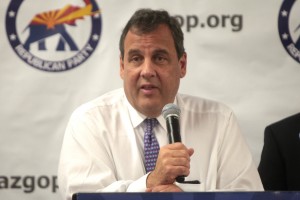
Christie is the sitting governor of New Jersey and ran for the Republican nomination earlier this cycle. Shortly after dropping out, Christie became one of the earliest endorsers of the Trump campaign, spurning more traditionally “establishment” candidates like Marco Rubio and John Kasich. Additionally, Trump announced that Christie would be the head of his White House transition team.
Like Cotton, Christie could help Trump more intensely focus the election on national security issues. In the aftermath of the 9/11 attacks, Christie worked as a U.S. attorney, and had much experience prosecuting terror-related cases.
In contrast with Cotton, who was relatively obscure until his election to the Senate, Christie is much more experienced in domestic issues. He is a red governor in a blue state, and he made a name for himself prosecuting corrupt politicians in New Jersey.
Christie’s reputation as a moderate, Northeastern Republican may help win Trump support from the center, and Christie’s fight against unions in New Jersey won him many admirers among Tea Party-type Republicans. But, the tension between these two facets of Christie may cause some headaches for the Trump campaign.
Some commentators have called out Christie for behavior they claim is “bullying.” He is loud, boisterous, and aggressive on the campaign trail. He constantly and mercilessly skewers opponents, and this can be off-putting for many moderates and independents. Coupled with already-mounting criticism of Trump’s loose-cannon nature, this could aggravate many who long for civility in politics.
Beyond that, Christie’s record on issues close to conservatives’ hearts could cause some problems for the Trump campaign. His position on guns, for instance, has been criticized by defenders of the Second Amendment. Perhaps more egregiously, Christie was forced to go on the defensive earlier this year when it was revealed that he previously supported Planned Parenthood. Trump is already trying to deal with fallout from past statements on these issues and others, and selecting Christie as VP would only move these issues to center stage.
Mike Pence
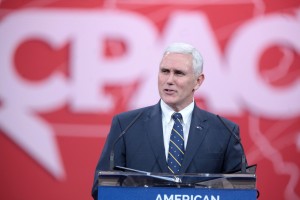
Pence is the governor of Indiana. During his time in Indianapolis, he has made tax reform a priority. He unsuccessfully opposed the resettlement of Syrian refugees in his state.
Previously, he represented his state in Congress, and was chair of the Republican Study Committee. There, he worked to advance a conservative agenda. He cosponsored a proposal to implement a spending limit amendment, supported earmark reform, and generally maintained a strong socially conservative record.
Pence is most well-known nationally for the Indiana version of the Religious Freedom Restoration Act. LGBT groups and big business objected to the law, which allowed individuals and corporations to claim in legal proceedings that their First Amendment rights regarding free exercise were being substantially burdened. Much to the chagrin of social conservatives, Pence buckled to criticism and signed a revision into law, which barred all types of discrimination or refusing to provide goods or services based on an individual’s sexual and gender identity.
During this year’s Indiana primary, after agonizing over the decision, Pence endorsed Ted Cruz. At the time, however, he said, “Let me be very clear on this race: Whoever wins the Republican nation for president of the United States, I’m going to work my heart out to get elected this fall.”
If Trump picks Pence, it would mean that he wants to fix tears in the Republican coalition that have left his campaign isolated from more conventional Republican office-holders, while at the same time retaining the outsider firebrand spirit that has characterized both Trump’s campaign and Pence’s time in Washington.
Jeff Sessions
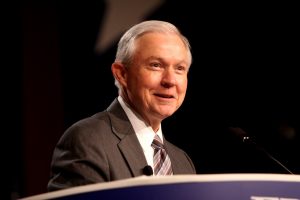
Sessions is the junior senator from Alabama and was the first senator to endorse Donald Trump. During his time in Washington, Sessions has earned a reputation for being a firebrand, especially on immigration issues. He fought the immigration reform proposed by the Gang of Eight particularly fiercely and criticized Marco Rubio during his campaign for his support of the proposals.
People like Matt Boyle of Breitbart News have called Sessions the “intellectual leader” of the new national populism. Many of Trump’s most loyal followers have taken inspiration from Sessions’ work on trade, immigration, and border security, and praise what they consider to be his “fighting spirit.”
Sessions is well-regarded in Tea Party circles, but has been given a wider berth by more establishment figures.
If Trump selects Sessions, it would be an act of doubling-down on the “Build the Wall” rhetoric that catapulted him to success in the primaries. To choose Sessions, Trump would have to reject conventional wisdom that a vice presidential candidate ought to balance the top of the ticket, in favor of a line of reasoning which says that the key to victory in November is an energized base.
—–
Ultimately, the Trump campaign has to mend the fissures handicapping the GOP, while at the same time picking a vice president that would help him with more independent demographics. Some fence-sitting conservatives who believe that the man is unprincipled could possibly be convinced otherwise if he shares the ticket with Gingrich or Cotton. Independents suspicious of Trump’s rhetoric on immigration and national security could be swayed if he selects a candidate considered by the public more moderate, such as Christie.
Even then, however, it is questionable how much a vice presidential pick would affect the race. Many in the #NeverTrump crowd, including conservatives and independents, are committed to their position and may not be swayed by a smart VP choice. Nevertheless, whoever Trump does pick will be a key indicator of which direction he intends to take his campaign in the run up to November.
Michael Lucchese works for the American Principles Project.
